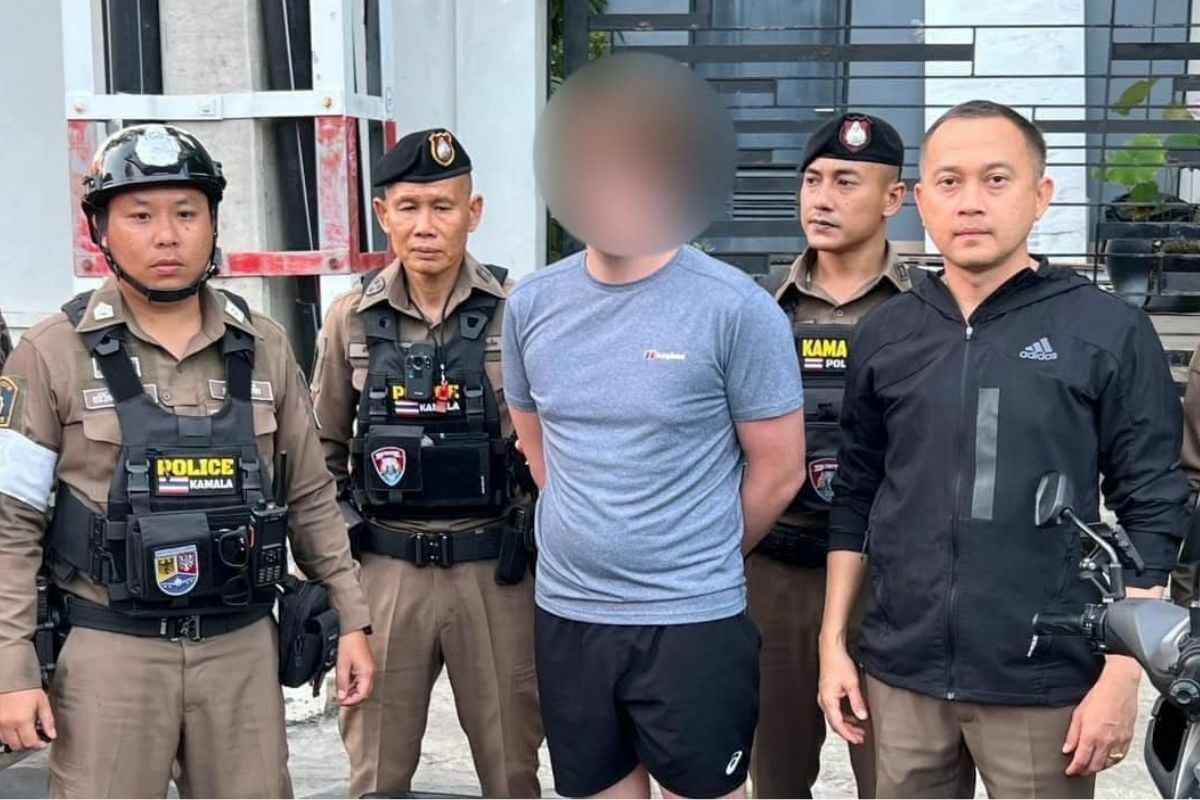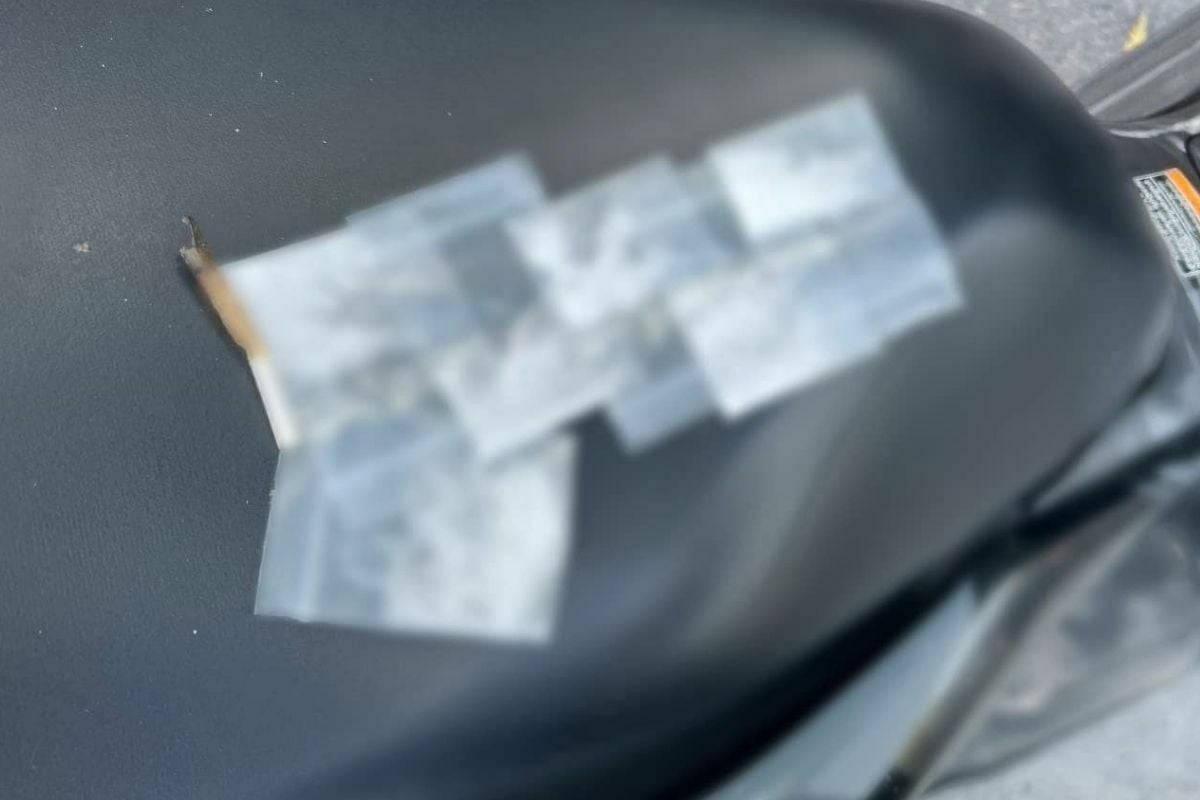British drug dealer arrested after his suspicious behaviour in Phuket

Police arrested a British drug dealer in Phuket after observing him behaving suspiciously while meeting traffic officers on a road.
Traffic officers from Kamala Police Station stopped the British man, whose identity remains undisclosed, in the Kamala area of Phuket yesterday, January 8.
The officers reported that they were conducting routine patrols when they noticed the man, who appeared nervous and was behaving suspiciously upon seeing them. Police conducted a search of both the man and his motorcycle, discovering ketamine in his possession.
Photos shared on the police’s official Facebook page show the drugs packed into six separate plastic zip-lock bags, seemingly prepared for sale.
The quantity of ketamine led officers to conclude that the suspect was not merely a user but a dealer involved in distributing the drug. It is unclear whether the police carried out a drug test on the British suspect.
Following the arrest, the man was charged under Section 146 of the Narcotics Control Act for producing, importing, exporting, distributing, or possessing Category 2 narcotics. This offence carries a penalty of up to 15 years’ imprisonment and a fine ranging from 200,000 to 1.5 million baht.

In a related incident in November last year, another British man was arrested in the northern province of Chiang Mai for distributing drugs to foreign tourists. Police seized 21.61 grammes of crystal meth, 10 ecstasy pills, 6.56 grammes of ketamine, and 10.10 grammes of cocaine from the suspect.

That same month, a British man and a Dutch man were arrested at a Bangkok condominium for drug trafficking. The two were reportedly the intended recipients of a parcel containing ecstasy, which was sent from the UK to Thailand. Police monitored the delivery and later raided their condominium.
In a separate case in September last year, another British drug dealer, described as a major trafficker, was arrested at a restaurant in Phuket. The suspect was reportedly evading a life imprisonment sentence in the UK and had been hiding in Phuket.
Drugs are a significant social and legal challenge in Thailand, with various dimensions to the problem:
1. Key Drugs of Concern
- Methamphetamine (Yaba): Methamphetamine is the most widely abused drug in Thailand. It is inexpensive and widely available, particularly in pill form called Yaba, which translates to “crazy medicine.”
- Heroin: While less common than in previous decades, heroin remains a problem in specific areas, especially near the Golden Triangle.
- Ketamine, Ecstasy, and Cocaine: These drugs are popular among urban and expatriate communities, often associated with nightlife.
- Cannabis: Recently decriminalized, cannabis use is growing, but its regulation remains under debate.
2. Geographic Factors
- Thailand is located near the Golden Triangle, a region bordering Myanmar and Laos known as one of the world’s largest drug-producing areas. This makes Thailand a transit hub for drugs destined for other countries and contributes to domestic availability.
3. Law Enforcement and Penalties
- Thailand enforces strict drug laws, with severe penalties for trafficking and possession of significant quantities. Death sentences and long-term imprisonment are not uncommon for major traffickers.
- The Thai government frequently conducts crackdowns, but enforcement is uneven, and corruption in law enforcement can undermine efforts.
4. Social and Economic Impact
- Drug abuse contributes to crime, including theft and violent offenses.
- It places a burden on the healthcare system, particularly concerning treatment for addiction.
- Communities, especially in rural areas, suffer from the breakdown of family structures due to addiction.
5. Government Responses
- The government has adopted harm reduction measures, including methadone programs for heroin addicts and campaigns to reduce Yaba use.
- Initiatives like the War on Drugs in the early 2000s drew international criticism for human rights abuses while attempting to curb drug-related crime.
6. International Relations
- Thailand collaborates with neighboring countries and international organizations to address cross-border drug trafficking, focusing on the Golden Triangle.
The drug problem remains a complex issue in Thailand, with ongoing efforts to balance enforcement, rehabilitation, and harm reduction amidst evolving social and economic landscapes.
Latest Thailand News
Follow The Thaiger on Google News:


























